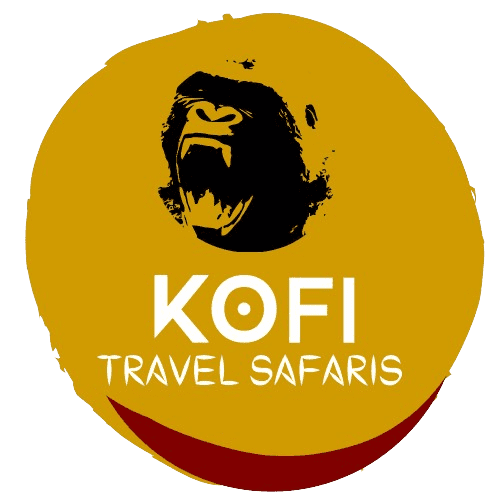The pearl of Africa, Uganda, beckons with its lush rainforests, majestic mountains, and vibrant wildlife. For the adventurous traveler, a self-drive safari offers an unparalleled opportunity to explore this enchanting land at your own pace. But navigating the dusty tracks and unpredictable weather demands careful preparation. To ensure a smooth and unforgettable journey, packing the right gear is crucial. This article serves as your comprehensive guide, outlining essential items, packing tips, and considerations for a thrilling self-drive safari in Uganda.
Conquering the Terrain: Essential Vehicle Equipment
Your vehicle is your trusty steed on this adventure, so equipping it for diverse terrain is paramount. Here’s a checklist for ensuring smooth journeys:
- 4WD rental: Opt for a reliable 4WD vehicle with high ground clearance to tackle rough roads and slippery tracks, especially during the rainy season.
- Spare tire and tools: A flat tire in the middle of nowhere can be a nightmare. Pack a spare tire with a jack, lug wrench, and basic tools for roadside repairs.
- GPS and navigational tools: Invest in a good GPS device or download offline maps on your phone. Offline navigation apps like Maps.me are invaluable in areas with limited internet access.
- First-aid kit: Be prepared for minor accidents and ailments with a well-stocked first-aid kit, including bandages, antiseptic wipes, pain relievers, and medications for common illnesses.
- Puncture repair kit: A tire puncture repair kit can save you the trouble of changing a tire, especially if spares are limited.
- Jumper cables: Dead batteries happen. Having jumper cables onboard can be a lifesaver, especially if you’re venturing into remote areas.
- Torch and flashlight: Essential for nighttime breakdowns or navigating unlit campsites. Headlamps are particularly handy for keeping your hands free.
- Fire extinguisher: A safety must-have in case of accidental vehicle fires.
Camping and Sleeping Equipment
Since you’ll be spending nights inside Uganda’s national parks, proper camping gear is a must:
- Tent – A sturdy, waterproof tent that’s easy to set up. Roof-top tents work great and mount directly to your vehicle.
- Sleeping bags – Warm, compact sleeping bags. Temperatures can dip at night and in higher elevations.
- Sleeping pad – For cushioning and insulation when sleeping on the ground. Inflatable or foam pads work well.
- Pillows – Pack a compact, inflatable pillow for comfort.
- Headlamps – Hands-free lighting for setting up camp and nighttime needs. Bring extra batteries.
- Camp chairs – Folding chairs provide seating around the campfire or at your site.
- Eating utensils – Pack plates, cutlery, cups, and a camping mess kit for cooking.
- Cooler – A cooler will let you have fresh food for the first part of your trip. Ice may be available at some camps.
Cooking Supplies
Plan for cooking simple meals at your campsite with:
- Camping stove – Small portable gas stoves work well. Ensure compatible fuel is available.
- Pots, pans, kettle – Lightweight, durable cookware designed for camping.
- Cutting board, knife – Prepare ingredients for quick one-pot meals.
- Cups, plates, bowls, utensils – Make mealtime easier.
- Bottle opener, can opener, corkscrew – Access your drinks and canned foods.
- Lighter, matches – Ignite your stove and campfire. Store in waterproof cases.
- Dish soap, scrub – Wash dishes and cookware after meals.
- Reusable towel – Clean and dry dishes effectively.
- Trash bags – Properly contain and store waste until disposed of at facilities.
Food & Water
Carry ample food and water when self-driving through Uganda’s remote areas:
- Non-perishable foods – Canned meats, vegetables, soups, pasta, grains. Replenish when possible.
- High-energy snacks – Trail mix, protein bars, dried fruit, beef jerky.
- Local foods – Purchase fresh produce, meats, bread when passing through towns.
- Spices and sauces – Carry salt, pepper, hot sauce, spices to flavor basic camp meals.
- Bottled water – Pack plenty and replenish from safe sources. Add electrolyte tablets.
- Water filtration – A portable filter like LifeStraw lets you filter water on the go.
- Fuel – Carry extra gas canisters for your camping stove.
Clothing and Footwear for Comfort and Adaptability
Uganda’s weather can be unpredictable, transitioning from sweltering sunshine to sudden downpours. Packing versatile clothing is key to adapting to these changes:
- Hiking shoes / boots – Durable footwear for walks and wet or muddy conditions.
- Sandals – Lightweight shoes for camp wear.
- Socks – Include taller, warmer socks for cold nights or hikes.
- Pants – Breathable, quick-dry trekking pants repel water and thorns.
- Shorts – Comfortable shorts for warm days. Avoid short shorts.
- Shirts – Lightweight, long-sleeve shirts provide sun and insect protection.
- Sweater / fleece jacket – Stay cozy around the campfire or on chilly game drives.
- Rain jacket – Waterproof outer layer keeps you dry in sudden downpours.
- Hat – Wide-brimmed hat shades your face from harsh sun.
- Bandana – Can cool you down when wetted. Also filters dust when worn bandit-style.
- Undergarments – Pack enough for the length of your trip.
Gadgets and Essentials for a Connected and Informed Journey
Staying connected and informed on your self-drive safari adds to the experience. Pack these essentials:
- Travel adapter and portable charger: Uganda uses Type G plugs, so pack a travel adapter for charging your devices. A portable charger comes in handy when electricity access is limited.
- Camera and extra batteries/memory cards: Capture the beauty of Uganda’s landscapes and wildlife with a good camera. Pack extra batteries and memory cards to avoid missing precious moments.
- Binoculars: Get a closer look at elusive wildlife and the stunning scenery with a good pair of binoculars. Choose waterproof and shockproof binoculars for durability.
- Field guidebook: A wildlife or birdlife field guide will be your handy companion for identifying the amazing creatures you encounter. Opt for waterproof editions for added protection.
- Entertainment: Download books, audiobooks, or podcasts for offline entertainment during long drives or relaxing evenings.
- Journal and pen: Document your adventures and reflections in a travel journal for an immersive and personal experience.
Staying Healthy and Safe: Medical and Essential Supplies
Pack these items to ensure your well-being on your self-drive safari:
- Personal medication: Bring any prescription medications you require, along with over-the-counter medications for common ailments like upset stomachs or headaches.
- Insect repellent and sunscreen: Uganda has a mosquito population, so pack a high-quality insect repellent with DEET.
- Sun protection: Sunscreen with SPF 30 or higher is essential for protecting your skin from the harsh African sun. Pack lip balm with SPF and a wide-brimmed hat for added protection.
- Water purification tablets or portable water filter: Access to clean drinking water can be limited in some areas. Pack water purification tablets or a portable water filter to ensure safe hydration throughout your journey.
- Toiletries and hygiene products: Pack essentials like biodegradable soap, shampoo, conditioner, and insect wipes. Opt for travel-sized versions to save space.
- Hand sanitizer and wet wipes: Maintain good hygiene with hand sanitizer and wet wipes, especially if access to proper washing facilities is limited.
- Emergency communication devices: Consider packing a satellite phone or GPS personal locator beacon for situations where mobile phone coverage is unavailable.
- Travel insurance: Invest in travel insurance that covers medical emergencies, flight cancellations, and lost or stolen luggage for peace of mind.
Essential Documents and Permits
Ensure a smooth experience by having all your necessary documents in order:
- Valid passport and visa: Check visa requirements for Uganda well in advance and obtain the necessary visa before your trip.
- Driver’s license and international driving permit (IDP): An IDP is mandatory for driving in Uganda. Get one from your home country’s motoring organization.
- Vehicle registration and insurance documents: Have copies of your rental car’s registration and insurance documents readily available.
- Park entrance permits: Purchase park entrance permits in advance or upon arrival at each national park you visit.
- Travel itinerary and booking confirmations: Keep copies of your travel itinerary, accommodation bookings, and flight confirmations for reference.
Essential Information for Navigation and Communication
- Currency exchange: Ugandan shillings (UGX) are the local currency. Exchange some currency before your trip or withdraw cash from ATMs in major towns.
- Mobile phone coverage: Mobile phone coverage is generally good in major towns and along main roads, but can be limited in remote areas.
- Time zone: Uganda is in UTC+3 (East African Time).
- Local customs and etiquette: Be respectful of local customs and traditions. Dress modestly when visiting religious sites or villages, and avoid public displays of affection.
- Road safety: Drive defensively and be aware of pedestrians, animals, and unpredictable road conditions.
By following these tips and packing the essential gear, you can embark on a self-drive safari in Uganda with confidence and excitement. Remember, the key is to be prepared for anything, embrace the unexpected, and enjoy the breathtaking beauty and adventure that awaits you in the pearl of Africa.
Safety and Emergency Equipment
Carry essential safety items:
- Fire extinguisher – Contains small vehicle or camp fires. Verify it’s charged.
- Reflective triangles – Place on roads to warn other drivers if your vehicle breaks down.
- First aid kit – Treat injuries with bandages, gauze, ointments and medications.
- Flashlights / torches – Illuminate campsites and dark areas at night. Headlamps free up hands.
- Satellite phone or emergency beacon – Summon critical help from remote locations out of cell phone range. Can be rented.
- GPS – If travelling without a guide, bring a stand-alone GPS device for navigation.
- Paper maps – Relying solely on technology is risky. Always carry detailed paper maps as backup.
- Compass – Navigate overland by traditional compass if modern navigation fails.
Tools and Repair Kits
Be prepared for minor vehicle and equipment issues:
- Vehicle toolkit – Carry essential tools like wrenches, pliers, screwdrivers, hammer.
- Tire changing kit – Include a jack, lug wrench, and spare tires.
- Air compressor – Quickly reinflate tires after repairs. Can run off car battery.
- Jumper cables – Revive a dead battery with help from another vehicle.
- Tow strap / kinetic rope – For vehicle recoveries if stuck. Use proper technique.
- Duct tape – Temporarily patch holes, cracks, splits in gear.
- Zip ties – Affix broken parts until permanent repairs can be made.
- Sewing kit – For minor gear and clothing repairs.
- Multi-tool – Compact tools like pliers, knife, screwdriver for quick fixes.
Bonus Tips for an Enriching Self-Drive Safari in Uganda:
1. Embarking on Language Adventure:
While English is widely spoken in tourist areas, learning a few basic Luganda phrases can go a long way. It shows respect for the local culture, opens doors to genuine interactions, and can even spark laughter and memorable moments. Here are some handy phrases to get you started:
- Mwebale nti? (How are you?): A versatile greeting that opens any conversation.
- Webale nnyo (Thank you): Show your appreciation for kindness or helpfulness.
- Nsalawo (Please): Add politeness to any request.
- Kale mwete (Goodbye): A friendly farewell.
- Nze bweti (I don’t understand): Seek clarification politely when needed.
Learning basic numbers and counting (emu, bbiri, musatu…) can come in handy when bartering at markets or ordering food. Don’t be afraid to try and don’t worry about perfect pronunciation – the effort alone will be appreciated.
2. Hydrate Responsibly with a Reusable Water Bottle:
Staying hydrated is crucial in Uganda’s warm climate, especially during safari drives. Packing a reusable water bottle is an eco-friendly and budget-conscious choice. By avoiding single-use plastic bottles, you’ll reduce waste and save money. Remember, tap water is generally not safe to drink in Uganda, so stick to filtered or bottled water for refills.
3. Supporting Local Gems:
Opting for locally crafted souvenirs from markets and artisan shops instead of mass-produced items is a beautiful way to support the vibrant community spirit of Uganda. You’ll find stunning batiks, intricate woven baskets, handmade jewelry, and unique wood carvings – each piece carrying a story and a piece of Ugandan culture. Don’t hesitate to chat with the artisans, learn about their craft, and negotiate prices with a smile.
Similarly, choosing local restaurants over international chains allows you to experience authentic Ugandan cuisine. From the mouthwatering rolex (chapati roll with eggs and vegetables) to the savory luwombo (steamed stew with groundnut sauce), tantalize your taste buds and immerse yourself in the local culinary scene.
4. Savoring the Journey:
Resist the urge to pack your itinerary to the brim with destinations and activities. Remember, this is a self-drive safari, not a race. Allow yourself to slow down, enjoy the scenic drives, take unplanned detours, and embrace the unexpected encounters. Stop at a roadside village market, chat with locals, and soak in the vibrant atmosphere. Take time for leisurely picnics with breathtaking views, stargazing sessions under the vast African sky, and quiet moments reflecting on your experiences.
The beauty of a self-drive safari lies in the freedom and flexibility it offers. Don’t get caught up in ticking off boxes on a list. Instead, be present in the moment, embrace the spontaneity, and allow the magic of Uganda to unfold at its own pace. This way, you’ll return home with not just stunning photos and souvenirs, but also a treasure trove of memories and a deeper connection to this captivating country.
By incorporating these bonus tips into your self-drive safari in Uganda, you can enrich your experience, contribute to the local community, and create lasting memories that go beyond the typical tourist trail. So, pack your open mind, your reusable water bottle, and your willingness to connect with the local culture, and get ready for an unforgettable adventure in the heart of Africa!
Packing Tips and Strategies for Efficient Organization
Packing smart is key for a hassle-free safari. Here are some handy tips:
- Use packing cubes: Organize your belongings by category using packing cubes. This helps you stay organized and find what you need quickly.
- Roll clothes instead of folding: Rolling clothes saves space and reduces wrinkles.
- Layer your clothing: Pack layers for adapting to changing temperatures and weather conditions.
- Utilize empty spaces: Fill empty spaces in your luggage with smaller items like socks or toiletries.
- Leave some space for souvenirs: Make room in your luggage for unique handcrafted souvenirs you might find during your travels.
- Label your luggage: Clearly label your luggage with your name and contact information for easy identification.
Closing Thoughts: Embracing the Journey with Confidence
By equipping yourself with the right gear and preparation, you transform your self-drive safari from a mere adventure into a truly enriching experience. You become a responsible traveler, a champion of the wild, and an advocate for sustainable exploration. Embrace the unexpected, navigate the diverse landscapes with confidence, and savor the unforgettable encounters that await you in the heart of Uganda. Remember, the perfect gear list is just a starting point; the true magic lies in the spirit of adventure, the open heart, and the willingness to be captivated by the wonders of Uganda’s wilderness.



4 Responses
Somebody essentially help to make significantly articles Id state This is the first time I frequented your web page and up to now I surprised with the research you made to make this actual post incredible Fantastic job
Commitment to quality comparable to a successful content marketing strategy – delivering value consistently.
I loved as much as you will receive carried out right here The sketch is attractive your authored material stylish nonetheless you command get got an impatience over that you wish be delivering the following unwell unquestionably come more formerly again since exactly the same nearly a lot often inside case you shield this hike
I just could not depart your web site prior to suggesting that I really loved the usual info an individual supply in your visitors Is gonna be back regularly to check up on new posts